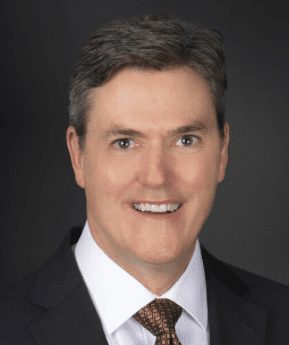
Editor’s note: Michael LaRouche was named Intelligence Industry Executive of the Year on Nov. 12.
The finalists for WashingtonExec’s Pinnacle Awards were announced Oct. 8, and we’ll be highlighting some of them until the event takes place virtually Nov. 12.
Next up is Intelligence Industry Executive of the Year finalist Michael LaRouche, who’s executive vice president and general manager of Science Applications International Corp.’s National Security Group. Here, he talks key achievements, future focus areas and overcoming career struggles.
What has made you successful in your current role?
I don’t rush to judgment. I’ve watched many leaders quickly assess and direct others when it wasn’t needed. I’ve witnessed the negative impact on leadership culture when that style is overused. I am an optimistic person and lead with positivity in the face of challenges.
My leadership success derives from listening intently to what customers want and to what employees are concerned about. Taking that insight, I plan and set goals that measure sustained progress. It is forward strategic progress, and the ability to adapt strategies in an agile way, that has made me successful in many roles.
I have also found that it is important to prevent the leadership team from becoming paralyzed with the pursuit of a perfect plan. I set a high bar of performance and create a space where employees are free to express creativity to achieve big goals.
What was a turning point or inflection point in your career?
Early in my career, I had a boss say to me, “You are very calm in a crisis and persistent.” He saw that our team was exhausted and trying hard to avoid an impending disaster. What he wanted me to hear was that I had a gift for standing up to lead in a boat taking on water when someone else might choose to abandon the ship because the risk of failure was too daunting.
It was through his insight that I discovered one of my greatest strengths — the ability to look through complexity, chaos and disruption to see possible solutions. On that project, I led the team, and we improved performance, resolved the major issues, increased productivity and together achieved success when so many critics said it could not be done.
The feeling of accomplishment from that particular project, of confronting a challenge others avoided, has been a big motivator for me over the years.
How do you help shape the next generation of government leaders/industry leaders?
The next generation is not looking to be told what to do and how to do it. No next generation welcomes that singular approach, and there would be no growth in our industry if we failed to be open to new ideas, vision and improvements.
Today’s up-and-coming leaders want to be part of the process of inspiration and influence. My hope is that my being an engaged leader of integrity garners the trust necessary to influence as a boss, a coach, a mentor and a team member.
I was fortunate to have had many supervisors and mentors throughout my career who generously encouraged me to speak up when I had a good idea, let me have a run at solving the most difficult problems and welcomed my creative thinking. I believe I will be able to look back on my career knowing that I did my best to do the same for others over the years.
Looking back at your career, what are you most proud of?
“Most proud” is impossible to answer, but I can say that I am very proud of how my career choices have provided for abundant opportunities to stretch out of my comfort zone and pursue challenging and diverse assignments. Those demanding roles and enriching responsibilities helped me become a more seasoned and impactful leader.
I have contributed to many significant national security programs. Layering in rewarding successes and frustrating failures helped me become a more humble and resolute leader. And every new interaction with a customer, employee or stakeholder helped me become a more accountable and purposeful leader.
I am proud that my leadership skills have been influenced by outcomes worth achieving and professional relationships worth building.
What was your biggest career struggle and how did you overcome it?
Maybe not my biggest struggle, but my longest-running struggle has been my youthful appearance. You may not be able to see it now with my current salt and pepper hair, but for the majority of my professional life, I have looked many years younger than my actual age — like looking 16 after college graduation.
This was a frequent obstacle to overcome professionally, because I have often been the youngest person in my current role, position or title. My challenge was to overcome being perceived as inexperienced.
Through my leadership approach, achievements and drive for results, I demonstrated that it wasn’t my years of experience, but rather the experience in those years that set me apart as a solid leader, role model and executive.
What’s your best career advice for those who want to follow in your footsteps?
The most useful advice I can offer is to have a career plan, but do not expect to follow it precisely. Along the way, you will be presented with opportunities to do something different, learn something new or take on a role that appears off-track from your perfect plan. This has happened to me many times, and even included living in and running a business from a foreign country.
So I would say, keep your aperture open enough to say “yes” to these opportunities with energy and enthusiasm. Be open to those unexpected changes of direction which can often times be unanticipated and formational in growth opportunities that make the journey more valuable.

